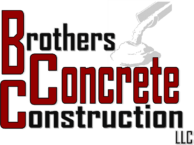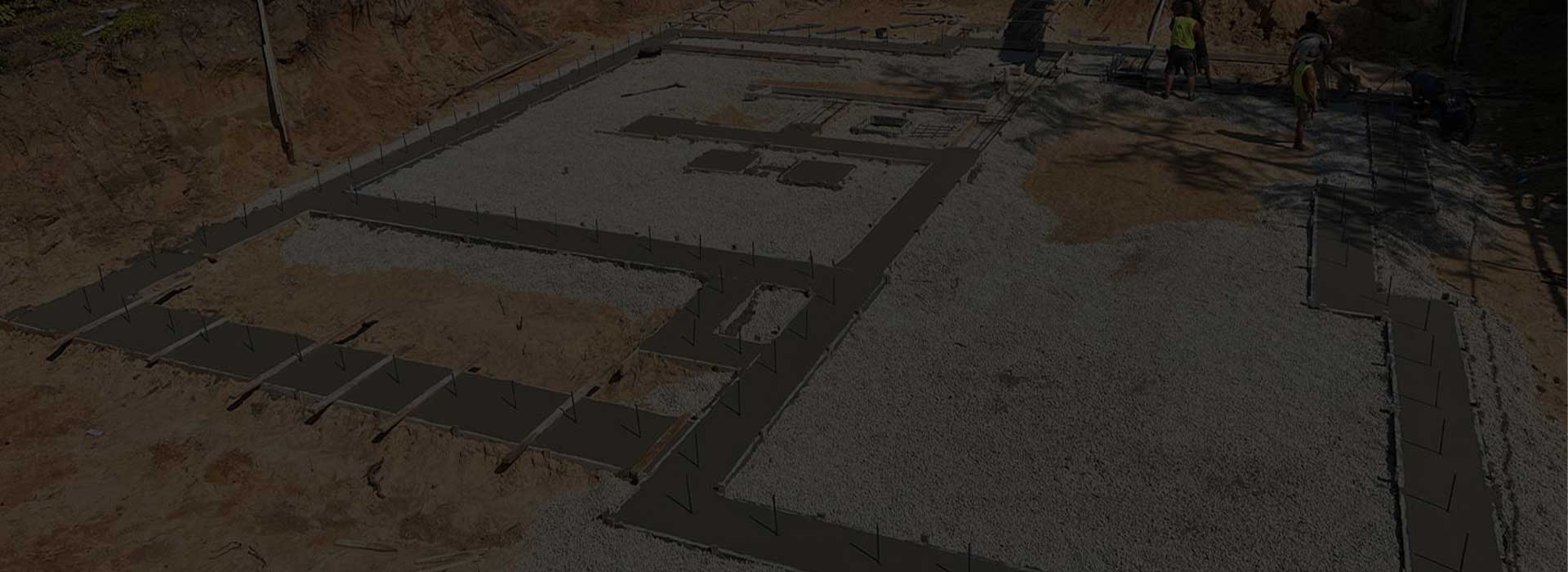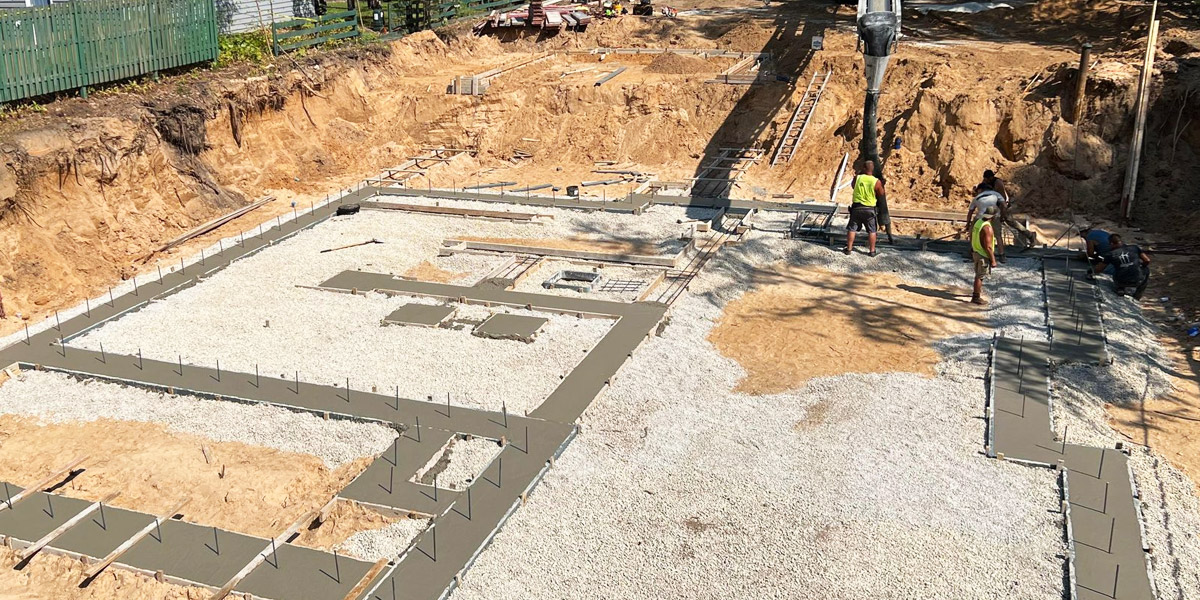
13 Jun Tips for Hiring the Right Concrete Company
What To Look For In A Concrete Contractor
As a homeowner, you know that concrete improvement and maintenance projects are always just around the corner. While it’s satisfying to check work off your to-do list, selecting a reliable concrete contractor can be stressful. After all, concrete work is a significant investment, and the aesthetics of your home are at stake.
At Brothers Concrete, we understand the stress that comes with choosing the right contractor. We’re here to help you make an informed choice so your investment is well-spent. Finding a dependable concrete contractor takes time and effort. We encourage you to do thorough research and make a confident decision without feeling rushed.
Here are nine tips to help you choose the right concrete contractor for your project!
1. Know What You Want for Your Project
Choosing the right contractor starts with having a clear vision of your project. Begin by identifying your top priorities, whether it’s adhering to a budget or ensuring premium craftsmanship.
Investing in an established contractor with a strong reputation and good referrals is your best bet. These contractors may charge more, but they bring a wealth of experience and a track record of successful projects.
Concrete work ranges from simple tasks like pouring a sidewalk, installing a stamped patio, or building a retaining wall. Many contractors specialize in particular types of concrete work, so choosing one who aligns with your project needs ensures you get the best results. This not only guarantees the job is done right but can also prevent costly mistakes and delays due to a lack of experience or specialization. Being selective in choosing a contractor ultimately protects your investment and delivers lasting results.
This not only ensures the quality of the work but also can save you time and money in the long run by avoiding potential pitfalls associated with inexperience or lack of specialization.
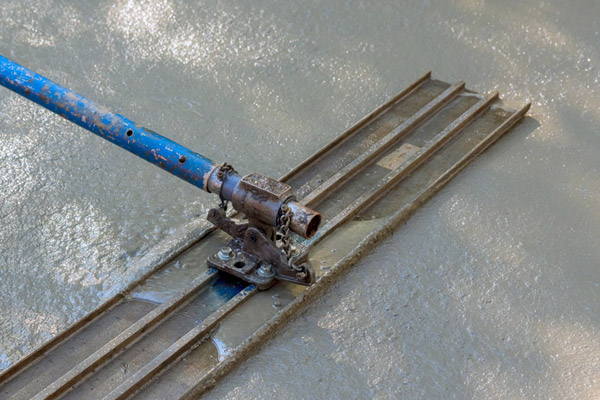
2. Create a List of Potential Contractors
Once you’ve identified your priorities, compile a list of potential contractors.
Start with recommendations from friends and family, especially those who have recently completed similar projects. Personal referrals can provide valuable insights into a contractor’s reliability and quality of work. Additionally, consider reaching out to local hardware stores or building supply companies; they often have a network of trusted contractors they can recommend.
Online searches can also yield many options, but focus on professionalism, transparency, and knowledge demonstrated on their websites. A professional website indicates a contractor’s commitment to their business and can provide a wealth of information about their concrete services and expertise.
Transparency about their services, pricing, and contact information is also crucial, as it shows the contractor’s willingness to communicate openly with potential clients. Check online reviews and ratings as well, but take them with a grain of salt and look for patterns in feedback rather than isolated comments.

3. Questions to Ask a Concrete Contractor
When you’ve narrowed down your list, start contacting the contractors. Below are some questions you should consider asking.
- Do you have insurance and the necessary certifications?
- How much experience do you have with this type of concrete work?
- What type of concrete do you recommend for this area?
- Do you use any additives to improve the concrete’s durability?
- How do you prevent cracking and ensure long-term quality?
- How do you manage project schedules and handle unexpected delays?
- How do you communicate with clients throughout the project?
- Are you willing to explain your methods and materials in detail?
Reliable contractors will provide knowledgeable, confident answers. These questions not only gauge the contractor’s expertise but also their willingness to educate you about the process.
This interaction can also give you a sense of the contractor’s professionalism and reliability. If they are reluctant to answer your questions or provide detailed explanations, it may be a sign to look elsewhere.
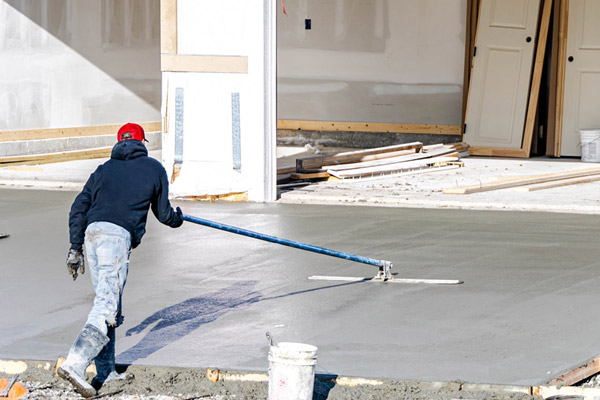
4. Get a Quote and Compare Prices
Request quotes from each contractor but remember to balance cost with quality. Extremely low estimates can be a red flag, indicating potential use of inferior materials or insufficient prep work. Avoid upsells unless they genuinely improve your project. Ensure the contractor visits your site for an accurate estimate.
A thorough site visit allows the contractor to assess the unique aspects of your project and provide a more precise quote. This also gives you the opportunity to discuss your vision in detail and address any concerns directly.
When comparing quotes, consider what each contractor includes in their pricing. Some might offer a lower base price but add extra costs for essential services like site preparation or cleanup. Make sure you understand what each quote covers so you can make an informed decision.
Additionally, consider the contractor’s payment terms. A reputable contractor will have a clear payment schedule, often tied to project milestones, which helps ensure that the project progresses smoothly and on time.

5. Request a List of References
Ask your concrete contractors for references and follow up with them. Inquire about the type of project, duration, communication quality, and overall satisfaction. Positive feedback from previous clients and industry peers is a strong indicator of a reliable contractor.
References provide firsthand insights into the contractor’s work ethic, reliability, and quality of work. Don’t hesitate to ask detailed questions about their experience and whether they encountered any issues during the project.
Additionally, consider visiting a few completed project sites if possible. Seeing the contractor’s work in person can give you a better sense of their craftsmanship and attention to detail.
If a contractor is proud of their work, they will be more than willing to showcase their previous projects. This step can also help you visualize the potential results for your own project and provide inspiration for your concrete work.
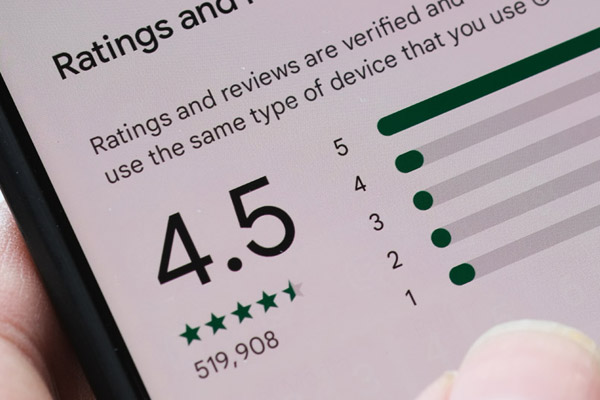
6. Ask About Schedule
Ensure the contractor’s schedule aligns with yours, especially for high-traffic areas where concrete needs time to set. Be cautious of contractors with completely open schedules, as this might indicate a lack of ongoing projects.
Discuss the project timeline in detail, including start and finish dates, and any potential delays that might arise. Knowing the schedule helps you plan accordingly, especially if the project affects access to your home or daily routine.
Consider the contractor’s flexibility and ability to accommodate your schedule. While it’s important to find a contractor who can start and complete your project within your desired timeframe, a busy contractor might indicate a high demand for their quality work.
However, ensure that they can commit to your project and provide regular updates on progress. Clear communication about the schedule helps avoid misunderstandings and ensures that both parties are on the same page.

7. Verify Contractor Licensing and Insurance
Confirm that the contractor is licensed and insured. This protects you from liability for any damages or injuries during the project. Verify their license with the state licensing board and request proof of insurance.
A licensed contractor adheres to state regulations and standards, ensuring that they are qualified to perform the work. Insurance is crucial in protecting both the contractor and you from unforeseen accidents or damages.
Ensure that the contractor’s insurance covers both liability and worker’s compensation. Liability insurance covers any damage to your property, while worker’s compensation covers injuries to the contractor’s employees.
Without proper insurance, you could be held liable for accidents or damages that occur during the project. Verifying these credentials provides peace of mind and demonstrates the contractor’s professionalism and commitment to safety.
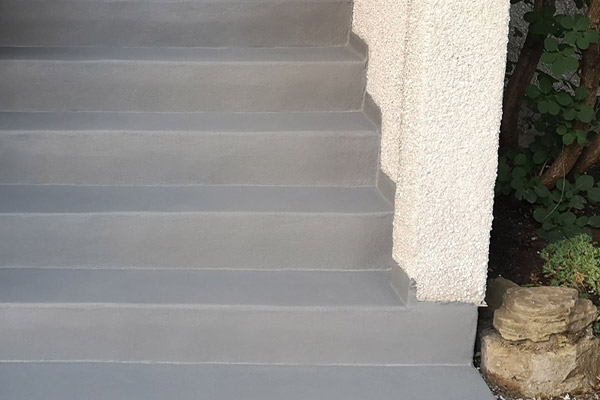
Related: Choosing the Right Concrete Patio: A Comprehensive Guide
8. Ask for a Contract and Get Everything in Writing
When you have chosen the concrete contractor you want to work with, you should ensure the contractor provides a detailed written contract. This should include work schedule, materials, payment timeline, and responsibility for site cleanup.
A clear contract protects both parties and sets expectations upfront. The contract should outline all aspects of the project, including specific tasks, deadlines, and payment terms. This prevents misunderstandings and ensures that both you and the contractor are on the same page. Review the contract carefully before signing and ask for clarification on any points that are unclear. A well-written contract benefits both you and the contractor by providing a clear roadmap for the project.
It ensures accountability and helps resolve any disputes that might arise. Don’t hesitate to negotiate terms that are important to you, such as warranties or guarantees on the work performed.

9. Trust Matters: Evaluate Your Experience
Ultimately, trust your instincts. A contractor should be approachable, responsive, and respectful. Good communication and a positive attitude are essential for a successful working relationship.
Your interactions with the contractor during the selection process can provide valuable insights into how they will handle your project. Look for a contractor who listens to your concerns, answers your questions thoroughly, and demonstrates a genuine interest in your project.
Consider how the contractor treats you and other potential clients. A professional contractor values customer satisfaction and builds trust through transparency and reliability. If you feel comfortable and confident in your interactions, it’s likely a good sign that you’ve found the right contractor.
Remember, a successful project is not just about the final result but also the experience of working together.

Hiring the Right Concrete Contractor: Concluding Thoughts
Reliable concrete contractors are out there, and with this guide, you can find one that meets your needs. When planning out your concrete driveways, slabs, floors, walls, foundation, sidewalks/paths, exposed aggregate, stamped or stained concrete projects, you should always have a plan of what you want, ask for recommendations, read reviews and ratings, compare pricing, and don’t be afraid to ask about the project management and communication process.
If you’re not sure of where to start for your concrete work, consider working with the concrete experts at Brothers Concrete for your next project. We serve the Waupaca, Wautoma, and Steven’s Point areas. Contact us today to get started!
